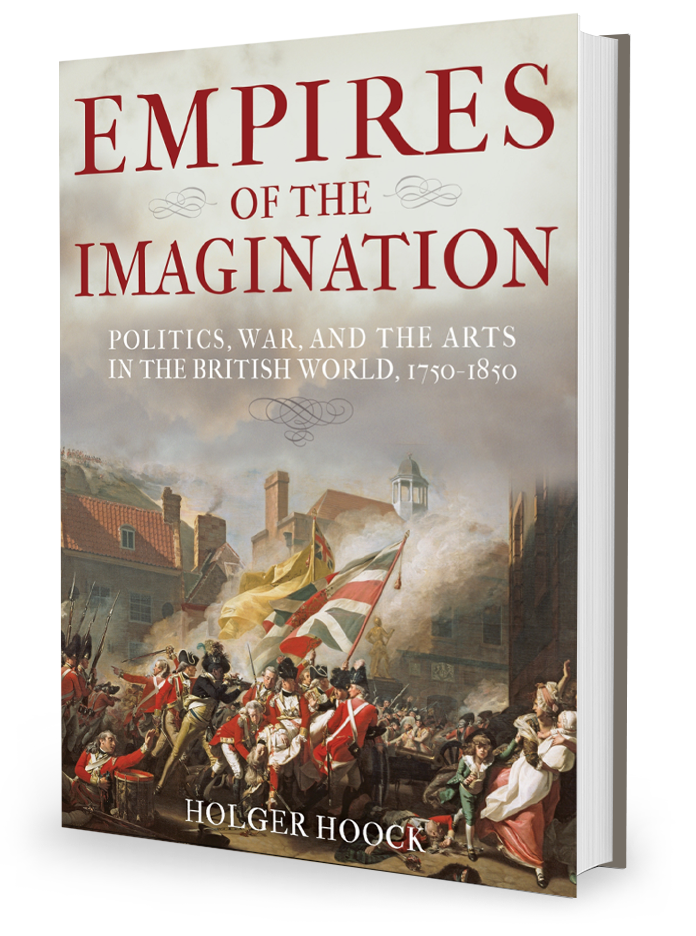From the mid-18th century to the early Victorian era, Britain evolved from a substantial international power yet relative artistic backwater into a global superpower and a leading cultural force in Europe. In this original and wide-ranging book, Holger Hoock illuminates the manifold ways in which the culture of power and the power of culture were interwoven in this period of dramatic change. Britons invested artistic and imaginative effort to come to terms with the loss of their thirteen American colonies; to sustain the generation-long fight against Revolutionary and Napoleonic France; and to assert and legitimate their growing empire in India. Demonstrating how Britain fought international culture wars over prize antiquities, the book explores how Britons appropriated ancient cultures from the Mediterranean, the Near East, and India, and casts a fresh eye on iconic objects such as the Rosetta Stone and the Parthenon Marbles. Deeply researched, presented in an accessible and lively prose style, and sumptuously illustrated with 20 colour plates, 47 black-and-white illustrations, and 4 maps, EMPIRES OF THE IMAGINATION takes the reader on a grand tour of imperial and cultural activities across the British world.
Buy the Book
What People Are Saying

A bold, provocative and ambitious book. Clearly and elegantly written and thoughtfully illustrated, this volume brings together collecting and memorialisation, travel and national identity, heroism and diplomacy, war and aesthetic drives in fruitful ways. It presents a wide perspective on an exceptionally significant era for the British world.”
—Ludmilla Jordanova, Professor of Modern History, King’s College London

An ambitious and original study of how eighteenth- and nineteenth-century imperial power was made manifest in a variety of cultural media, especially the visual arts. Covering three continents and a range of detailed case studies, it combines breadth and depth, explaining how the British state and the ruling political and artistic elites worked together to create a powerful conception of the British empire.”
—John Brewer, CalTech, author of The Pleasures of the Imagination: English Culture in the Eighteenth Century
Reviews
“Terrific” “a hefty, exceptionally learned and exhaustively … researched book … Hoock’s feel for the creative disorderliness of the time is a pleasure”
–Simon Schama, Financial Times (read the full review here)
“An excellent book, brimming with insights and splendid illustrations … a sumptuous treat indeed”
–Dominic Sandbrook, Daily Telegraph
“An ambitious, authoritative survey of British visual culture in an age of imperial ascent”
–Maya Jasanoff, Guardian
“Chock full of vivid case studies … beautifully done”
–Dan Jones, Spectator
“Beautifully produced, closely argued and deeply researched … an important, weighty book. It deserves close scrutiny and a warm reception.”
–Denis Judd, BBC History Magazine
“It’s exciting to see a book with a big argument about a big narrative so well told.”
–C.A. Hanson, Hunting Library Quarterly
Publishers Weekly (Sept. 2010)
Hoock, an associate professor in British history and founding director of the 18th Century Worlds Centre at the University of Liverpool, provides a thorough examination of Britain as a world power in this dense yet accessible anthology of that country’s reign. From 1750 to 1850, Britain built an empire that was much more than a military achievement. It absorbed and collected the cultures of America, Egypt, the Middle East, and India. The loss of the American colonies stimulated the need for didactic art and, as England perfected culture building, they employed not only grand ceremony (such as Coronation Day), but also painting, writing, sculpture, music, and architecture to create a unique civilization. Official monuments, such as those to Trafalgar and Waterloo, raised armies by fostering patriotism and emulation. At the same time, the British began “collecting” treasures, not only to prevent their acquisition by other European powers, but to also increase national pride, preserve antiquities, and corroborate the Bible. Hoock clearly shows the culture of power and the power of that culture in this amazingly-detailed scholarly work.
To book Holger for interviews, lectures, book signings, or other events, please contact his publicist:
Sarah Grimm, Crown Publishing Group / Penguin Random House
